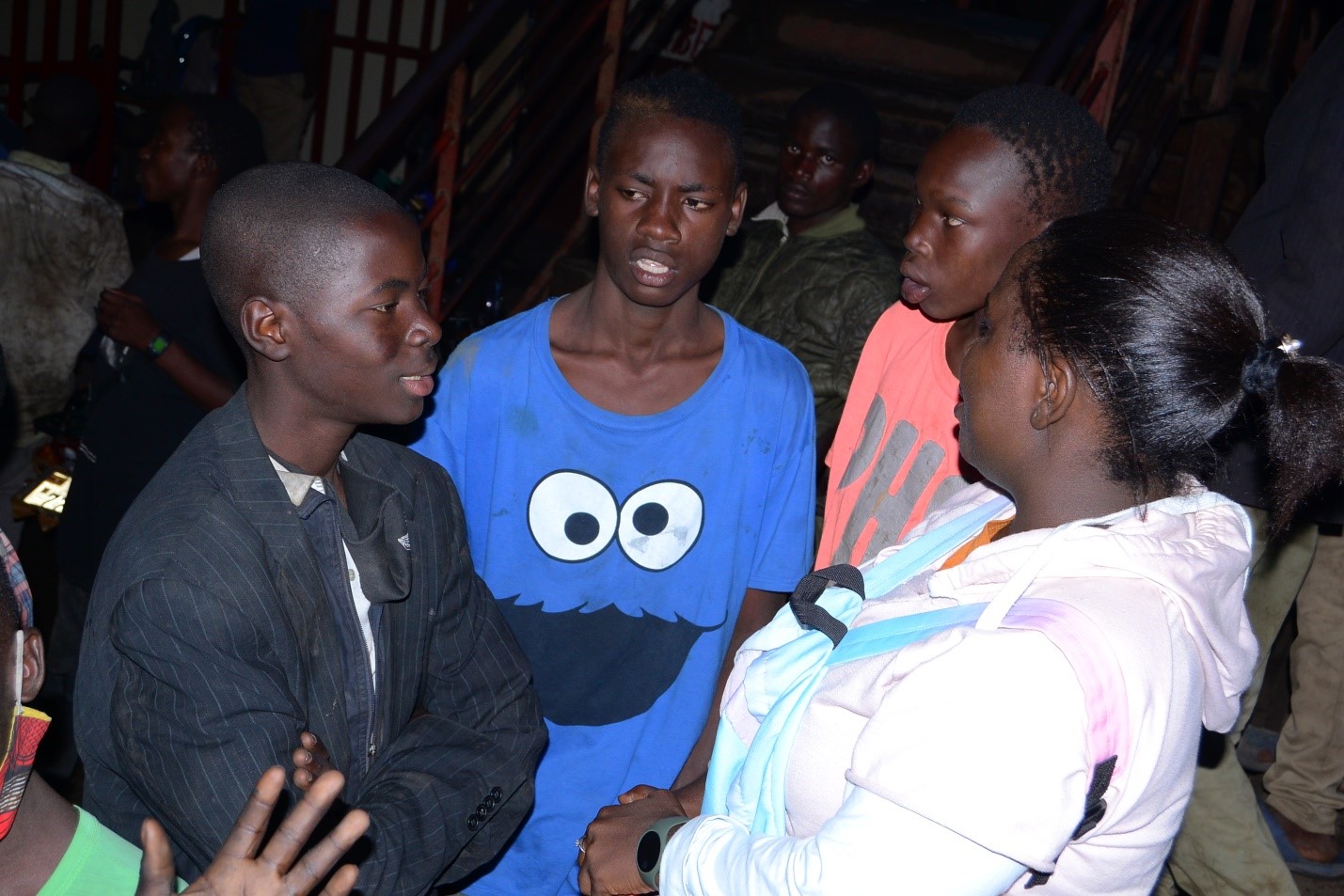HIV COUNSELLING AND SENSITIZATION

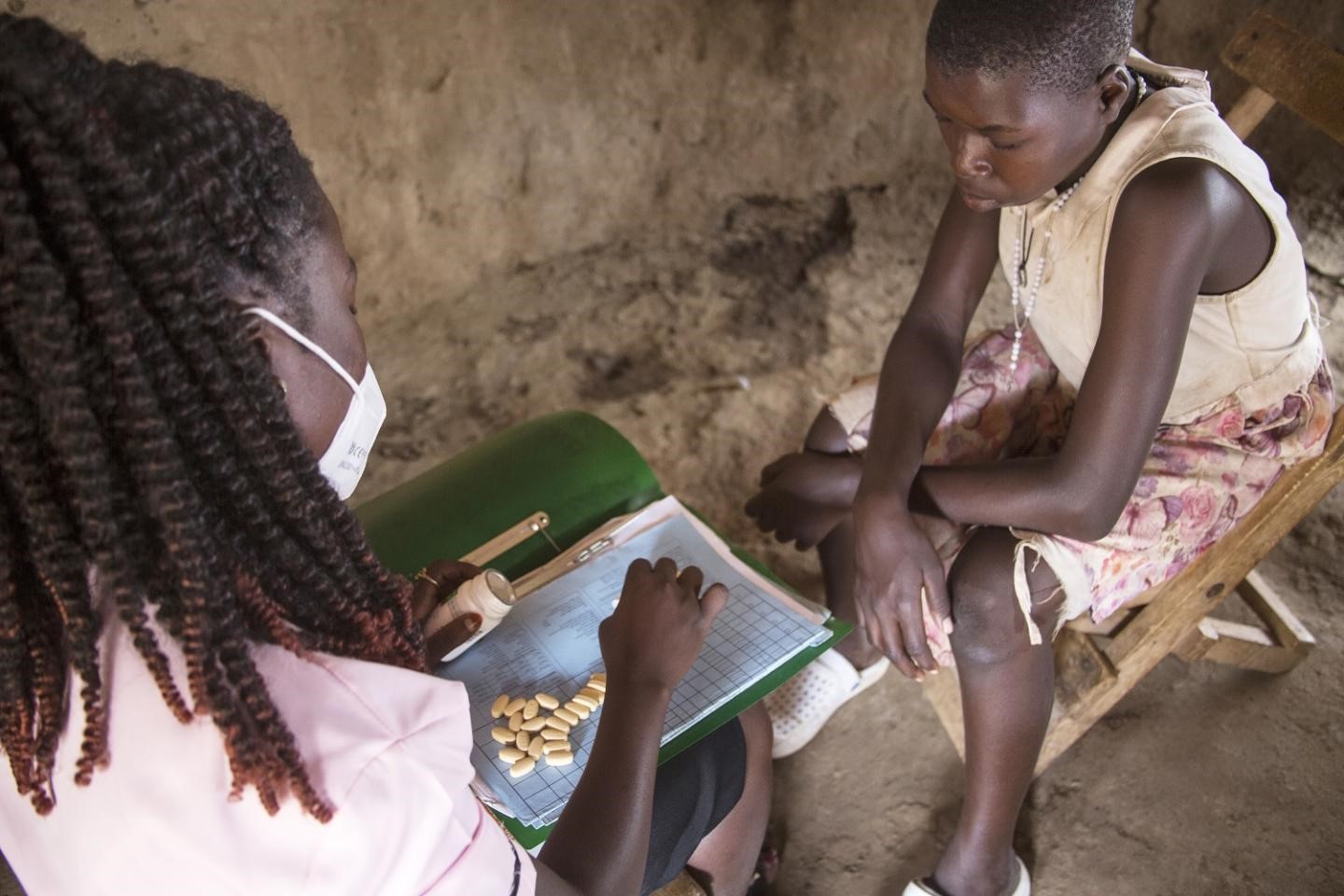
ABOUT HIV/AIDS
HIV/AIDS is devastating much of Uganda's population. A significant number of people are unaware of this health crisis and are less interested in addressing the disease. This neglect is creating millions of orphans, not only in Uganda but around the world. HIV/AIDS is one of the major causes of many children joining the streets every day. The loss of their parents and the inability to attain their basic and fundamental needs continue to push them into vulnerable situations.
Through our programs, we have reached out to over a thousand street children through our day and night outreach efforts. We provide them with free medical aid for minor health issues, food and water, clothing, counseling, and other necessities that they cannot access on the streets. Additionally, through medical treatments in hospitals, we are able to trace and identify the infected children. We immediately take these children away from the streets to our shelter to help them start their medication.
HIV/AIDS IN DIRE COMMUNITIES
In the dire communities of Kampala, HIV/AIDS remains a pressing challenge, affecting countless individuals, especially women and men living in poverty. The stigma surrounding the disease often isolates those diagnosed, making access to healthcare and social support more difficult. Despite this, people living with HIV/AIDS in these communities often demonstrate remarkable resilience. Their diagnosis forces them to reassess their lives, leading to a shift in how they view relationships, family, and survival. Many affected individuals form close bonds based on empathy and shared experiences, redefining love and intimacy in ways that prioritize trust, understanding, and mutual support. Living with HIV/AIDS often sparks a greater appreciation for life, encouraging them to focus on positive change, education, and raising awareness in their communities. Grassroots efforts, such as peer support groups and outreach initiatives, have proven essential in providing a lifeline to those grappling with both the disease and the challenges of poverty.
Access to Healthcare
Provide medical treatment like antiretroviral therapy and regular health check-ups to improve well-being and longevity.
Education Awareness
Spread knowledge about HIV prevention, transmission, and treatment to reduce stigma and promote safe practices.
Emotional Mental Support
Offer counseling; create support networks to help individuals cope with the emotional challenges of living with HIV/AIDS.
Safe Practices and Harm Reduction
Distribute tools like condoms and clean needles to prevent the spread of HIV through risky behaviors.
Legal and Social Protection
Advocate for laws and policies that prevent discrimination and ensure equal access to services for those with HIV/AIDS.
Economic Empowerment
Provide training and job opportunities to help those affected by HIV gain financial stability and reduce dependency.
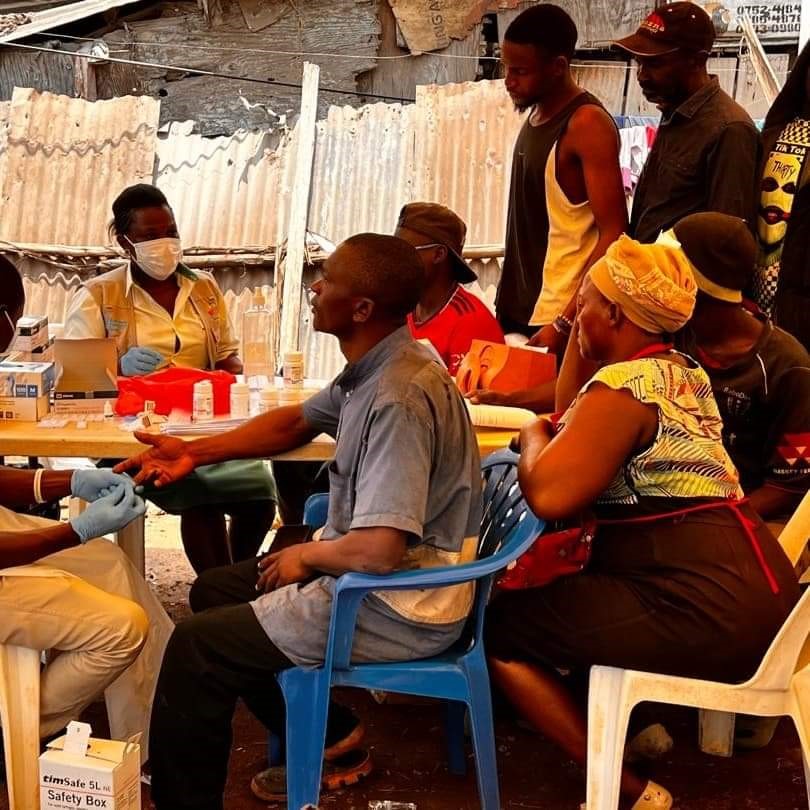
Rising HIV/AIDS Spread in Ugandan Communities. A growing concern
The spread of HIV/AIDS is increasing in Ugandan communities, particularly among teens, single mothers, men, and families, due to several factors. Among teens, a lack of comprehensive sexual education and peer pressure often leads to early and unsafe sexual activity. Single mothers face economic hardships, making them vulnerable to transactional sex or relationships where safe practices like condom use are often neglected. In men, cultural norms around masculinity sometimes discourage open discussions about sexual health or regular testing. Many men engage in multiple partnerships without using protection, further driving the spread. Families may suffer from a lack of communication or education on HIV prevention, allowing misconceptions to persist. In general, poverty, limited access to healthcare, and the stigma surrounding HIV/AIDS prevent timely diagnosis and treatment, exacerbating the spread within communities.
DRUG SENSITIZATION
Additionally, the connection between drug addiction and the spread of HIV/AIDS cannot be ignored. Street children, in particular, are highly vulnerable. Many children join the streets seeking a better future, but the harsh realities they face drive them toward drug use. Addiction begins with the hope that something external can fill their inner emptiness, but it often leads to further despair. On the streets, children face extreme cold and peer pressure from older street boys, leading them into drug abuse. This increases their vulnerability to HIV/AIDS through risky behaviors, such as sharing needles and engaging in unsafe sex, often as a means of survival.
These children have endured unimaginable suffering—rejection by family, social exclusion, trauma, violence, and abuse. Our work is to provide the support they need through group and one-on-one sessions to help them cope and heal. However, without addressing the root causes—poverty, lack of education, and the stigmatization of drug use and HIV/AIDS—these problems will persist. Drug sensitization, alongside better education and healthcare access, is essential in reducing both drug abuse and the spread of HIV/AIDS, particularly in these vulnerable communities. Only by tackling these issues together can we hope to curb the growing rates of HIV/AIDS and protect the future of Uganda's most at-risk populations.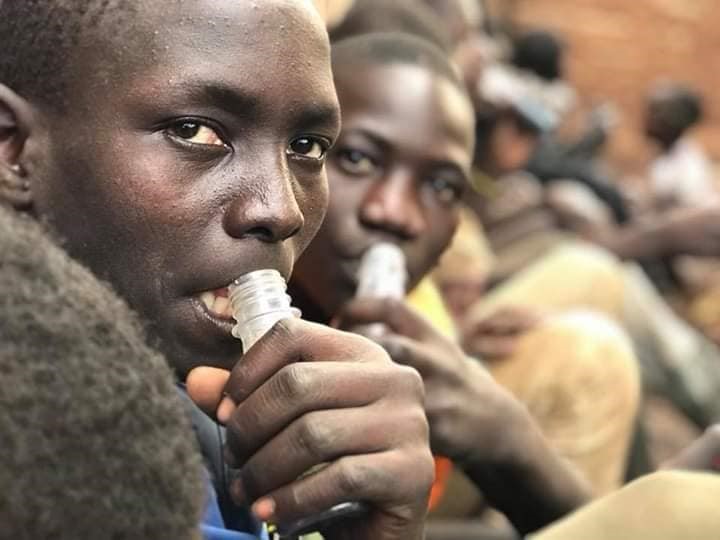
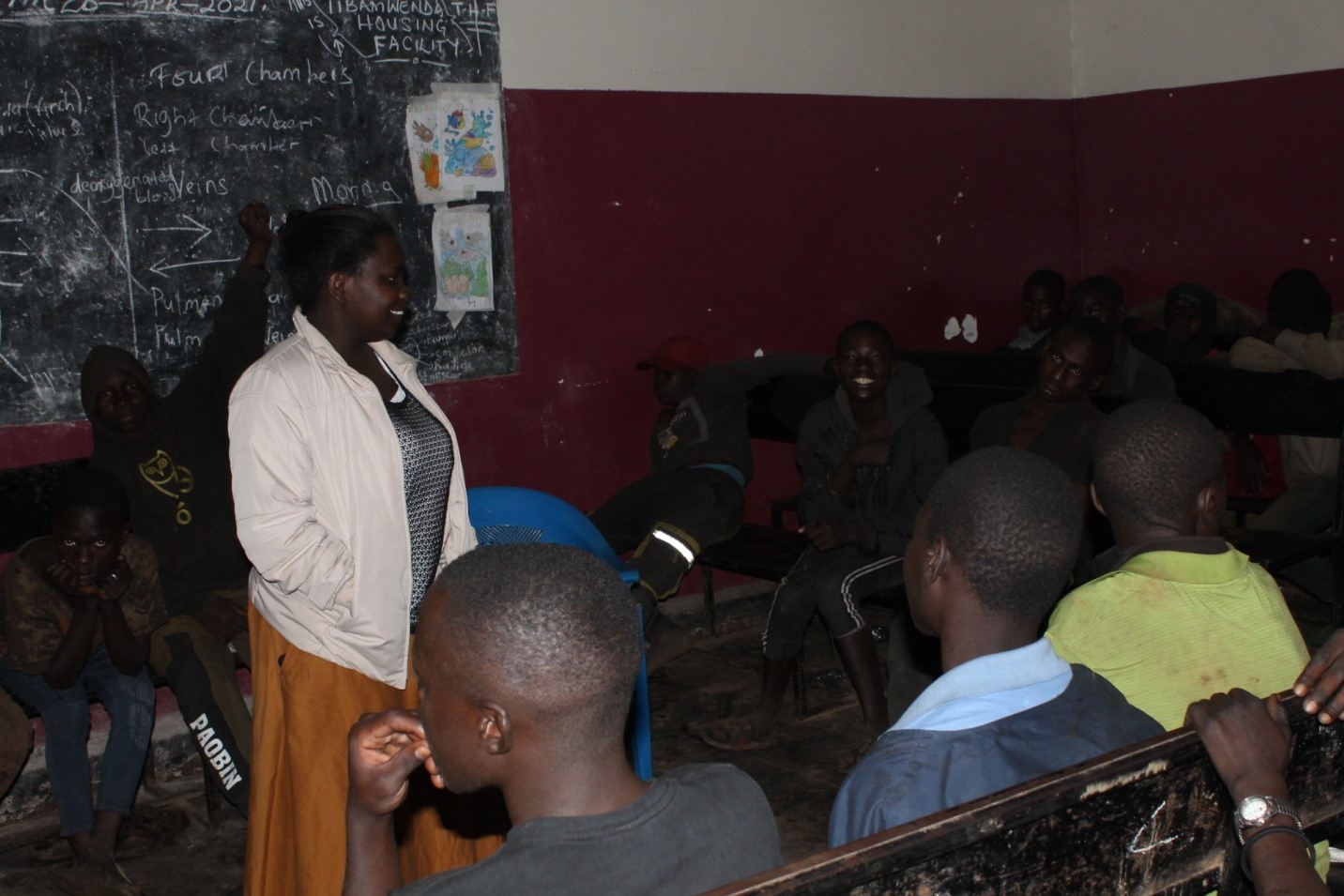
Breaking the Cycle
Combating Drug Abuse and HIV/AIDS for a Healthier Future in Uganda.In Uganda, the intertwining issues of drug abuse and HIV/AIDS create a significant public health challenge. Many individuals turn to drugs as a means of coping with the trauma and hardships associated with their circumstances, which can lead to risky behaviors and further transmission of HIV.
To break this cycle, it is crucial to implement comprehensive education and prevention programs that address both drug abuse and HIV/AIDS. By raising awareness about the dangers of substance abuse and promoting safe practices, we can empower individuals to make informed choices.
